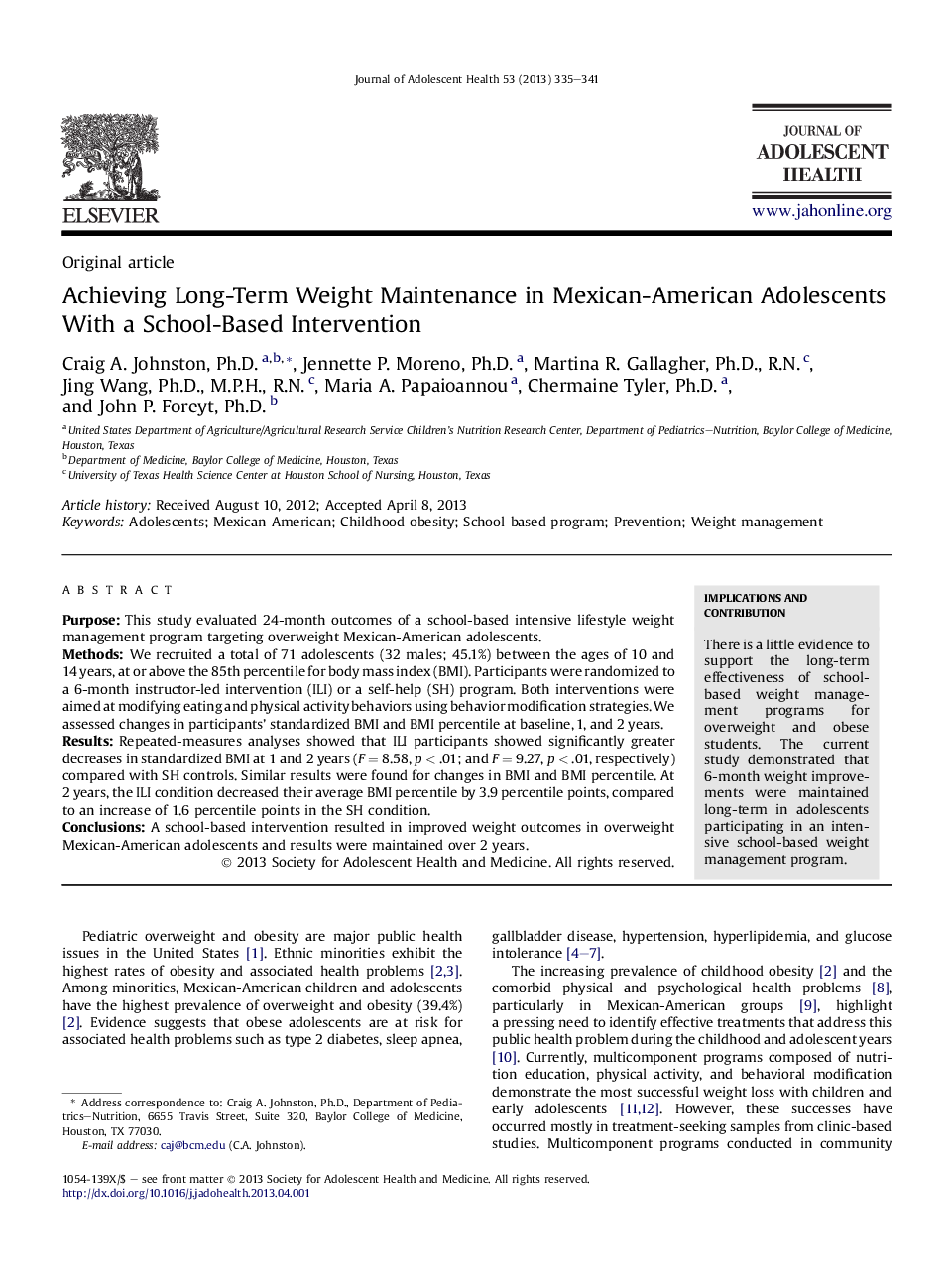| Article ID | Journal | Published Year | Pages | File Type |
|---|---|---|---|---|
| 1079308 | Journal of Adolescent Health | 2013 | 7 Pages |
PurposeThis study evaluated 24-month outcomes of a school-based intensive lifestyle weight management program targeting overweight Mexican-American adolescents.MethodsWe recruited a total of 71 adolescents (32 males; 45.1%) between the ages of 10 and 14 years, at or above the 85th percentile for body mass index (BMI). Participants were randomized to a 6-month instructor-led intervention (ILI) or a self-help (SH) program. Both interventions were aimed at modifying eating and physical activity behaviors using behavior modification strategies. We assessed changes in participants' standardized BMI and BMI percentile at baseline, 1, and 2 years.ResultsRepeated-measures analyses showed that ILI participants showed significantly greater decreases in standardized BMI at 1 and 2 years (F = 8.58, p < .01; and F = 9.27, p < .01, respectively) compared with SH controls. Similar results were found for changes in BMI and BMI percentile. At 2 years, the ILI condition decreased their average BMI percentile by 3.9 percentile points, compared to an increase of 1.6 percentile points in the SH condition.ConclusionsA school-based intervention resulted in improved weight outcomes in overweight Mexican-American adolescents and results were maintained over 2 years.
